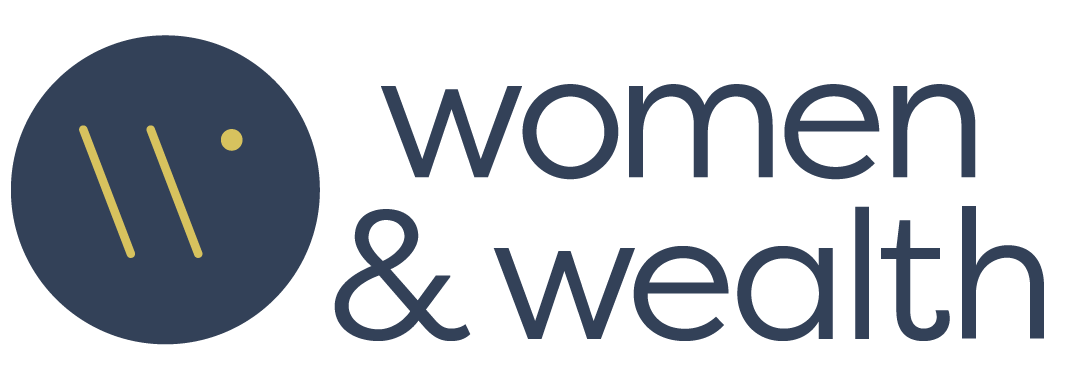We’re Having a Potluck! I'll Bring the Secret Sauce for Women's Economic Mobility
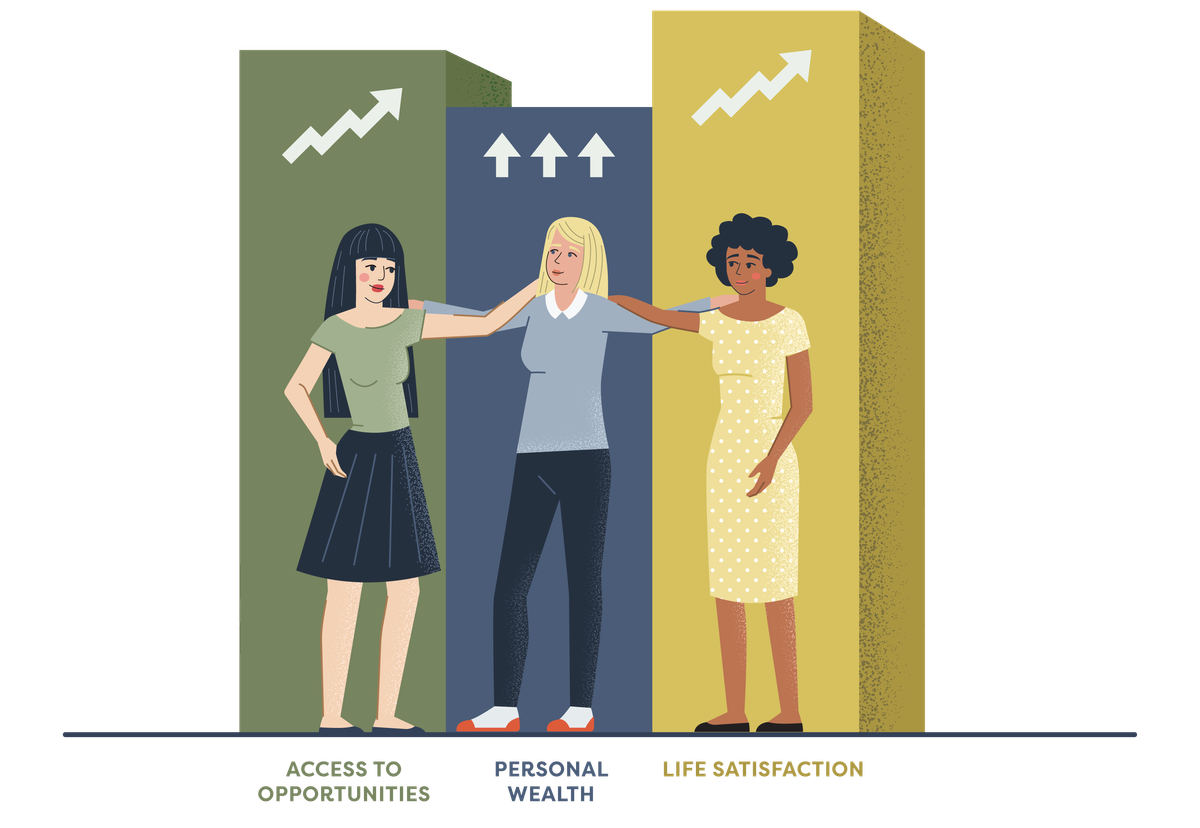
Almost twenty years ago, when I lived in an apartment complex just outside of Los Angeles, two neighbors and I were talking in passing about what to make for dinner. My favorite meal at the time was a Chipotle-style burrito that was only available from a restaurant named Cafe Rio in Salt Lake City, Utah. I loved the sweet pulled pork with a slightly spicy kick, the flavorful black beans and rice, and all the fresh tomatoes, corn, salsa, and cilantro dressing that made it a perfect bite. My mom had recently found “secret” copies of the recipes so I could make my own version of the meal, but, as I lamented to my neighbors, it had a lot of steps and required too much effort.
My description must have been compelling because, just as I finished, they both jumped in with an idea to divide up the recipes and have a multi-family dinner night. A week later, we each brought our contributions, and with minimal work, everyone had a delicious dinner and the added benefit of having friends to eat it with.
I love win-win scenarios, and winning at dinner is an easy example of such a scenario—with everyone combining strengths and dividing labor—made possible by the power of friendship. And the same "stupid simple" concept can be applied to almost any life challenge. I have yet to find a personal problem that isn’t improved when I engage my friends to brainstorm better outcomes or partner for more impactful solutions. Collective good is about identifying where individuals benefit from collaboration and what can be achieved when working together.
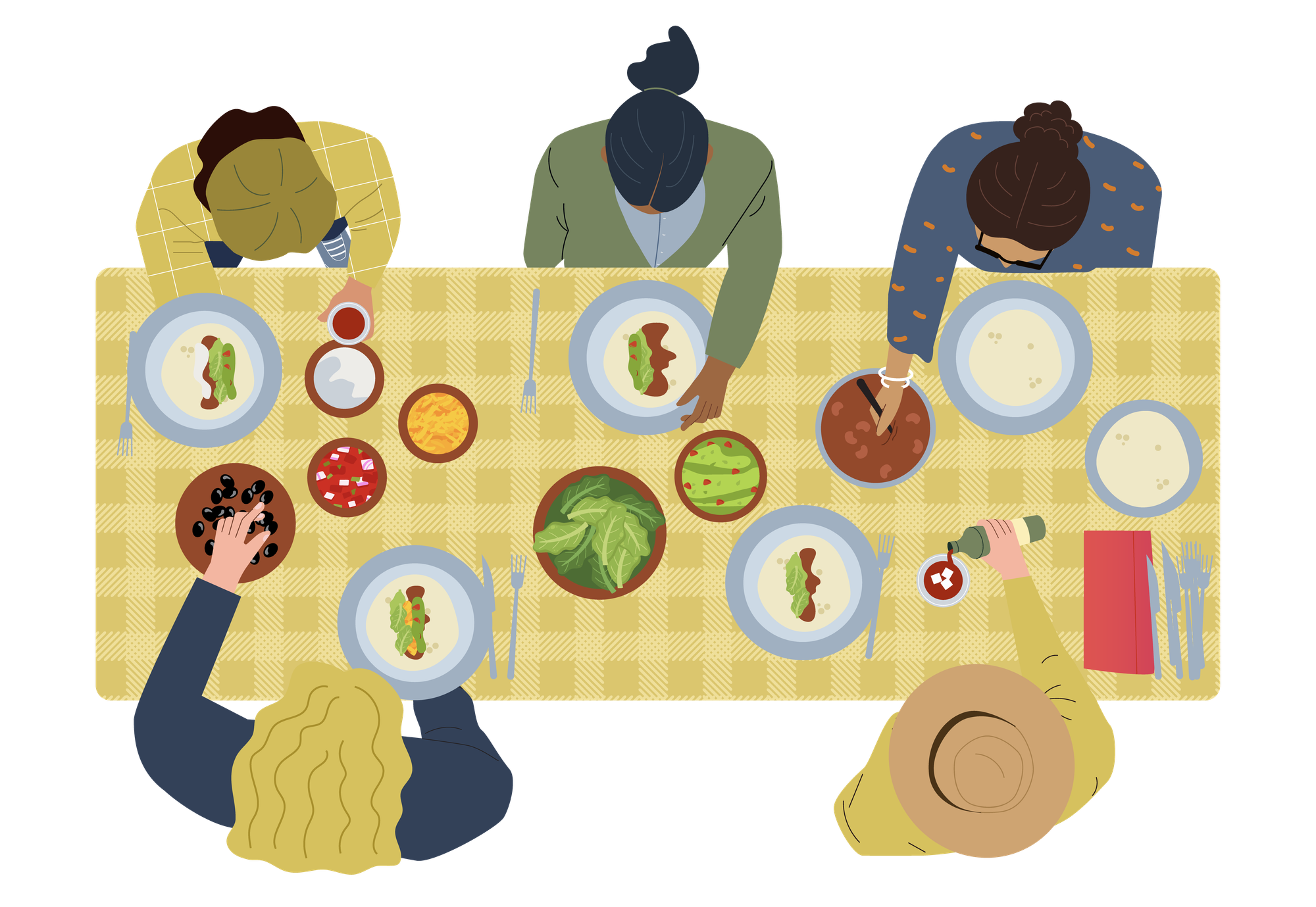
There are so many opportunities to find win-win outcomes for women to support each other and create wealth together. A few years ago, when I told my friends I was writing a blog titled “Women & Wealth,” the reactions were mixed—thinking of women pursuing wealth was uncomfortable. “Wealth” is a powerful word and, depending on your perspective, can be pejorative in the same way that “ambition” and “competitive” are usually treated as negative terms when describing women. Wealth is treated as an individual pursuit, and I wish we approached it more often as a team activity. How might our communities benefit if we look for ways to create healthy, vibrant neighborhoods and towns?

When writing, I intentionally selected the word “wealth” because it is a word that can be applied to any of the eight forms of capital: Social, Material, Living, Experiential, Cultural, Intellectual, Spiritual, and Financial.
We can have a wealth of knowledge, experiences, friends, or money—or all of the above. When cultivated, these resources are not mutually exclusive: they build upon one another and create options and opportunities. If we think about power as the ability to desire an outcome and achieve it, these forms of capital directly contribute to making women more powerful. In a world that is not, yet, created with women in mind, it is critical for more women to begin proactively identifying what they want and engage their wealth of capital resources to achieve it.
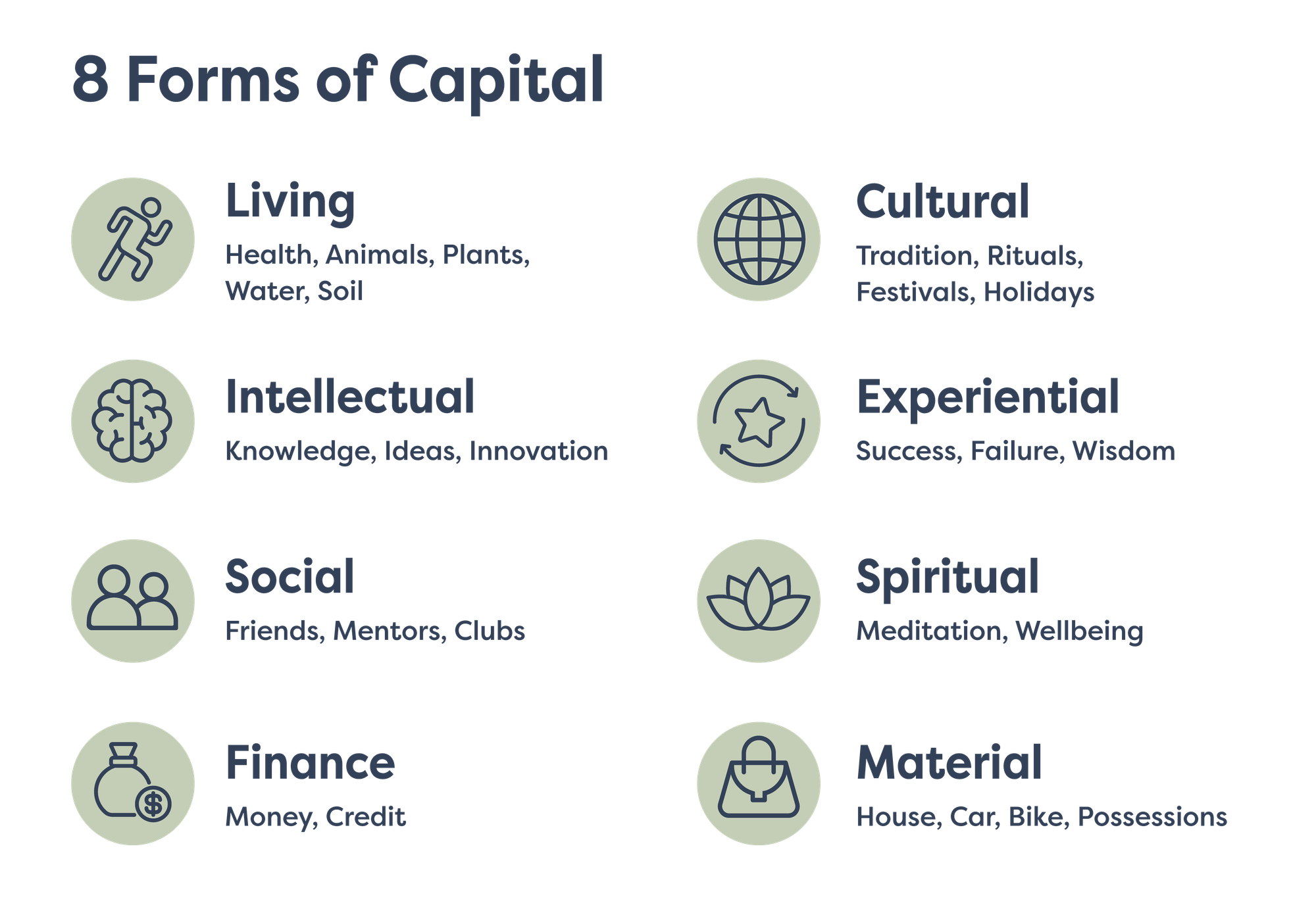
In my experience, the most fulfilling paths to financial wealth creation are win-win opportunities, often ones that involve other forms of capital. And while financial wealth might be a goal, the most predictive capital to increase financial wealth is social capital.
Social capital is the only lever that moves the economic needle and unlocks more financial opportunities for greater economic wealth.
A research program called Opportunity Insights, based at Harvard, found that positive economic mobility goes hand-in-hand with social capital. Through a robust national data set of communities in the United States, they found that human connection was one of the strongest predictors of upward social mobility:
“Children who grow up in communities with more economic connectedness (cross-class interaction) are much more likely to rise up out of poverty.“
In other words, friendships formed across economic classes help children from less economically privileged backgrounds to reach financial security—and these benefits come with no negative impacts to their peers from higher socioeconomic backgrounds. Win-win: everyone benefits when we build friendships across economic classes.
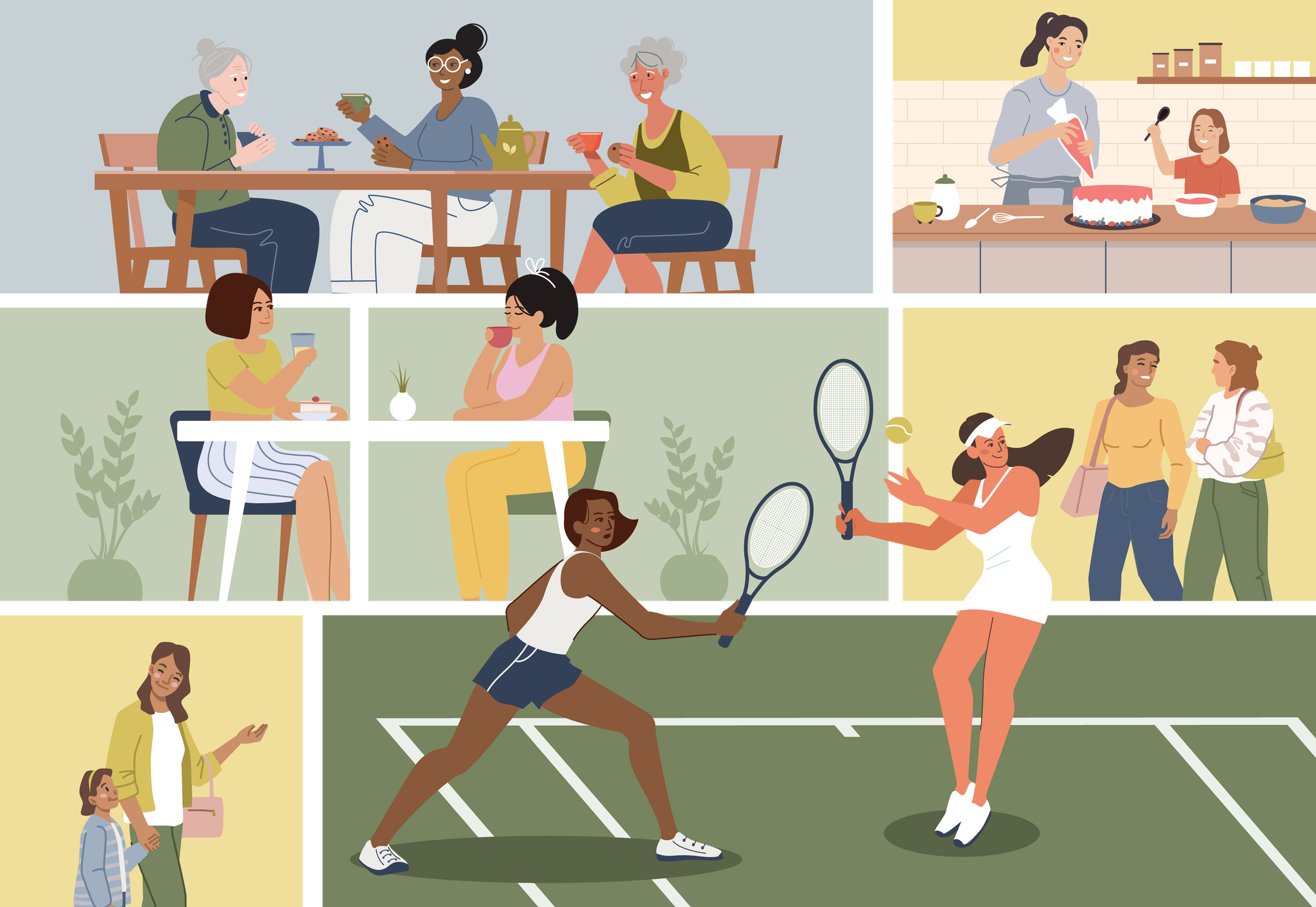
Another Harvard study that began in 1938 found that social connections and close relationships were essential factors in predicting a healthy and fulfilled life in old age. A summary of research compiled by Our World in Data shows that happiness is spread through social networks and not only influences individual well-being, but also has broader implications for community and societal health. A primary and “winning” reason to build and maintain friendships across a broad network is that it will make you a happier person.
We have the right ingredients. What's the recipe?
For the last two years, I have mentored young women through a Utah-based program called Women Who Succeed. It has been a joy to engage the next wave of young professionals in conversations to identify their dreams and offer support and tools for them to achieve their goals.
One exercise we work on is creating a “Capital Map.” In this exercise, we identify their next goal (often to land their first professional job out of school) and identify the many forms of capital they have to help them get their first job. We explore those eight forms of capital—Social, Material, Living, Experiential, Cultural, Intellectual, Spiritual, and Financial—to identify what resources they can leverage as they pursue their goals. I have a blank template available for anyone to copy and fill out here. (Just copy the blank slide and create your own slide to fill it in with your goal at the center.)
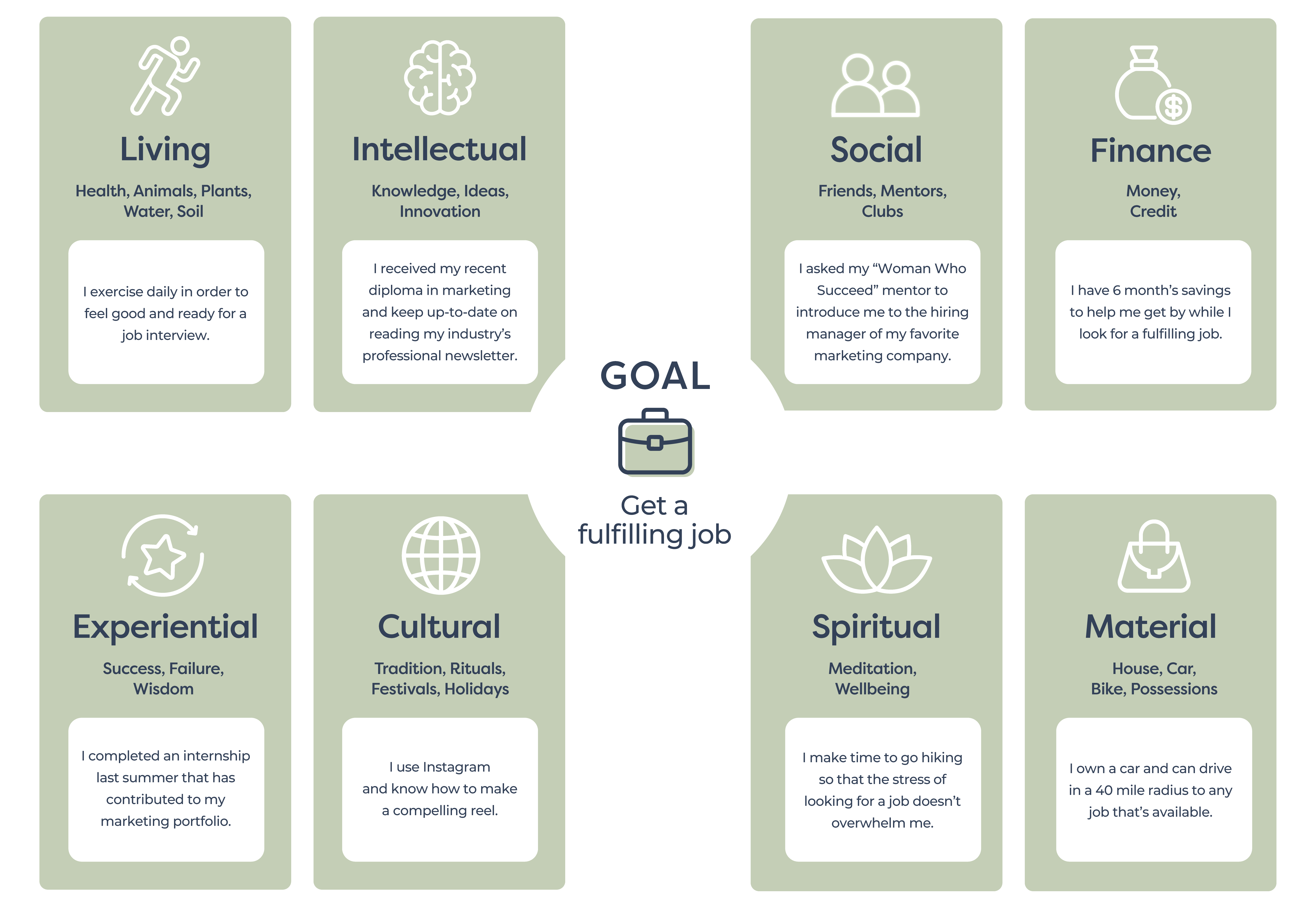
It’s a great exercise and one that applies to anyone pursuing a personal or professional goal. Intentionally taking an account of one’s existing capital by brainstorming and listing relationships, life perspectives, education, and financial resources can help identify new ideas and approaches to achieving goals.
One of the biggest “aha” moments for most of these young women is recognizing they have the power to engage their network of friends and family along with their personal life experiences in targeted ways to intentionally achieve their dreams.
I hope women everywhere can access more financial wealth. Women need this positive mobility to close the 131 year gender gap I wrote about in a previous post. We need more collaboration and collective action in the form of strong social networks that help women propel one another to greater economic success. We need strong relationships that connect us to new ideas, opportunities, networks, and experiences. When our friendship and professional networks are brave enough to talk about finance, we take taboo topics and make them accessible. We collectively unlock opportunities and create wealth.
In American capitalism, we tend to believe that there are winners and losers. I wonder if there aren’t more win-win scenarios where women work together and find collective success that is good for communities and for the individuals within that community. We have more power to define and set our worth than most of us were conditioned as little girls to believe we deserve.
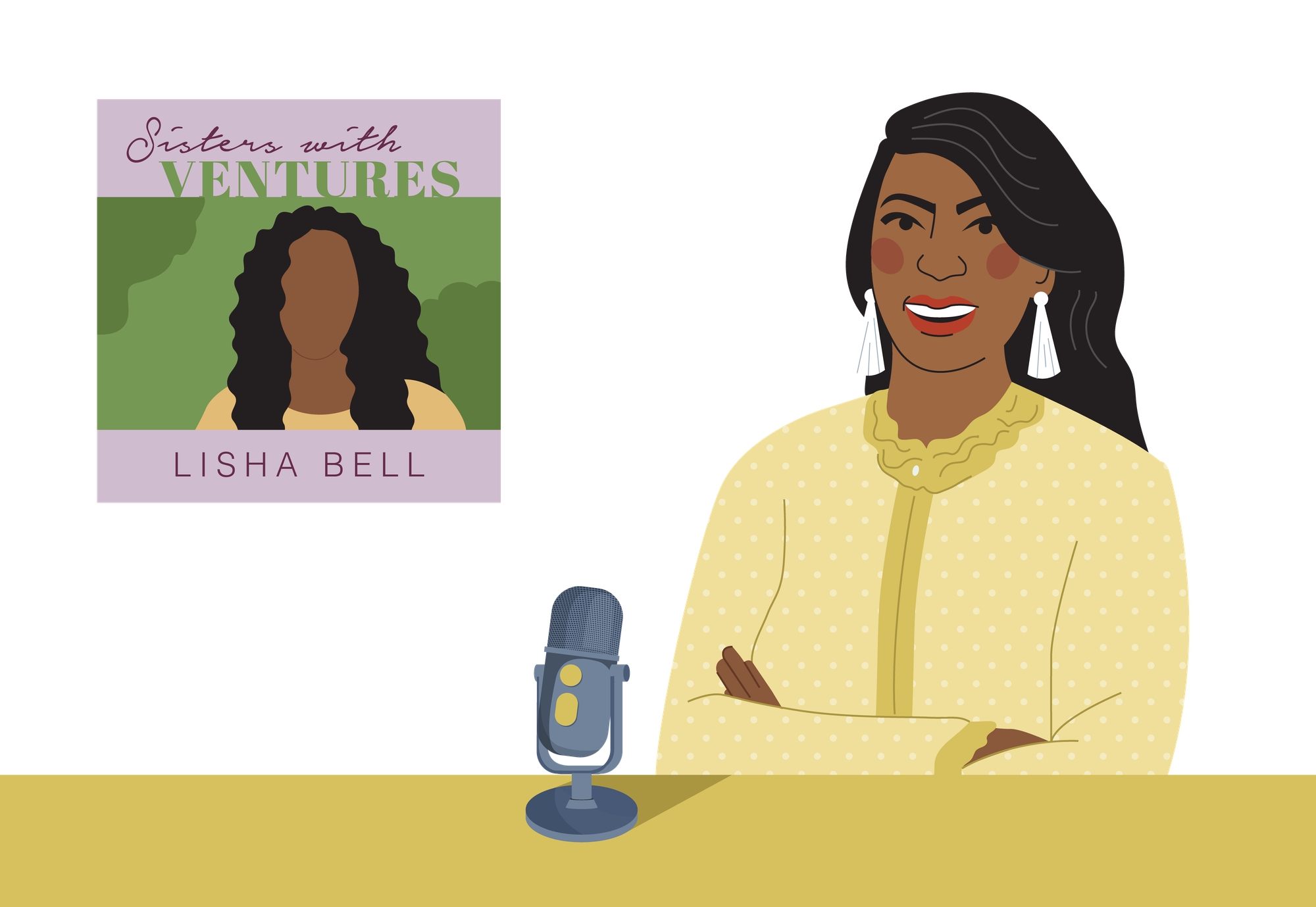
Inviting one another to a “Capital Potluck Party” lets us create opportunities and rewrite systems that were not created with women or people of color in mind. When we center diverse members of our community and intentionally imagine new outcomes, we unlock the power to collectively create those outcomes. As an example of this, venture capitalist Lisha Bell, hosts Sisters with Ventures, a podcast interviewing successful Black women and sharing their stories. One by one, these women become part of a powerful and inspiring network connecting listeners with stories from women of color. Lisha is using her social capital to interview and amplify women on her podcast while inviting these powerful women to join her angel investment group, where they mobilize financial capital. It is a win-win power move that benefits, amplifies, and creates a compounding social good.
Social capital has compounding benefits.
If you want to experience more financial resilience, reduce loneliness, and create greater life satisfaction, invest in your social network. Invest in your friendships and show up for them. To get started, ask yourself:
- How deep are my relationships?
- Do I have someone I can talk to about my most important life decisions and dreams?
- How broad are my relationships?
- Do I get outside of your own social demographics to build friendships in meaningful ways?
- Do I have any meaningful and deep relationships with people who are different from me?
- When was the last time I checked on my neighbor?
- What will I do today to invest in a friendship? Who can I show up to support?
These connections can happen on a small scale, with your colleagues at work, or on larger platforms that are forming to connect women across the United States. A few large networks that are bringing women together to talk about supporting one another, sharing social connections, and enriching one another with financial conversations that I have found valuable (in no particular order) include:
SheMoney
How Women Lead
Chief
The Fourth Effect
Hustle Fund
Twenty years ago in LA, one communal dinner turned into another turned into another. I love thinking back on those LA potluck “Cafe Rio” nights. We developed friendships and made time to prioritize coming together as a little apartment community. The meals were magic, and beyond our lifelong friendships forged during that time, we also enjoyed a healthy dinner and spent less time and money than we would have otherwise. Our potlucks were such a simple example of ways to collaborate with old and new friends to win together—and there are endless more such opportunities for win-win connections. Women & Wealth knows our community goes hand in hand with our power to change systems and create more equitable economies for the next generation.
